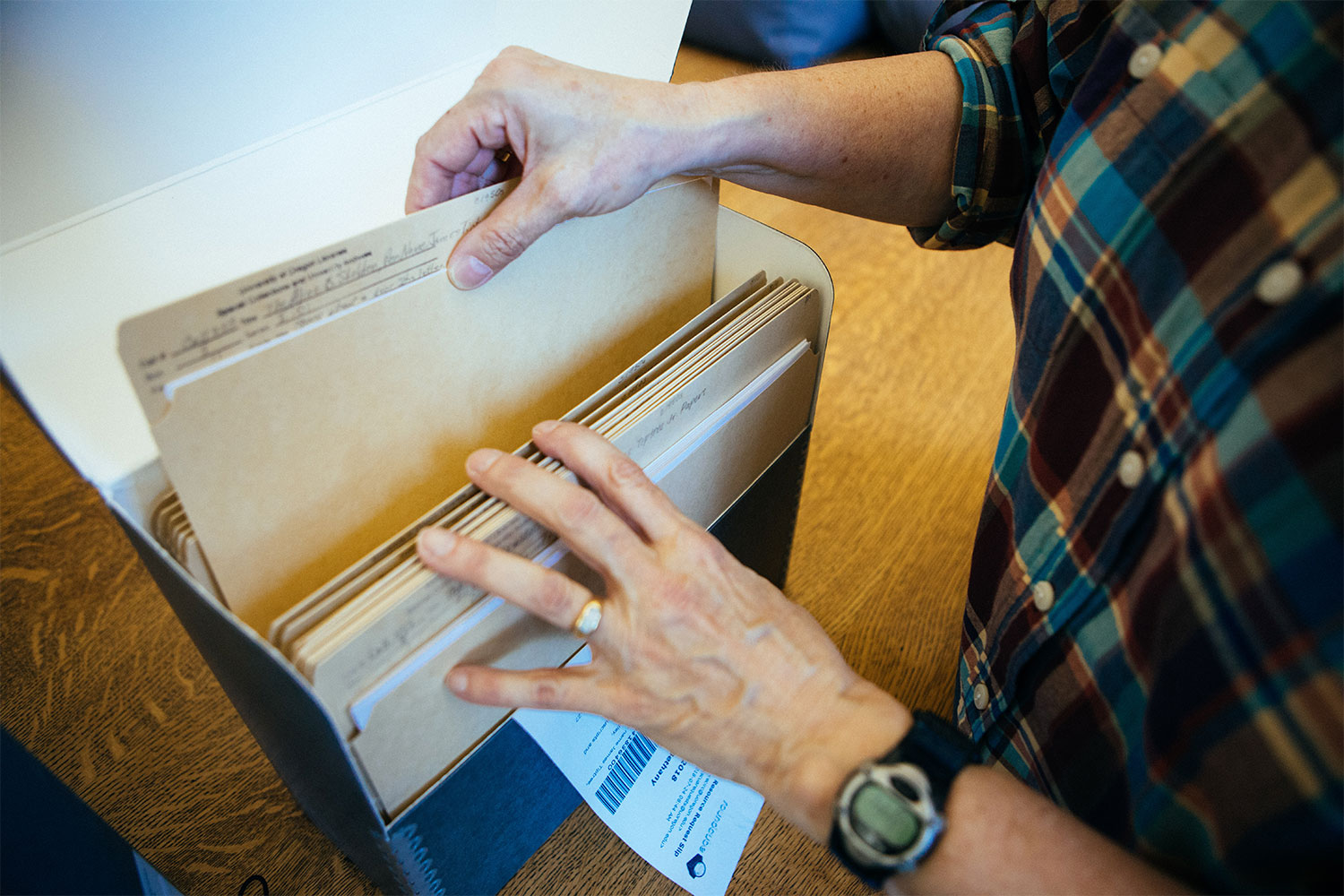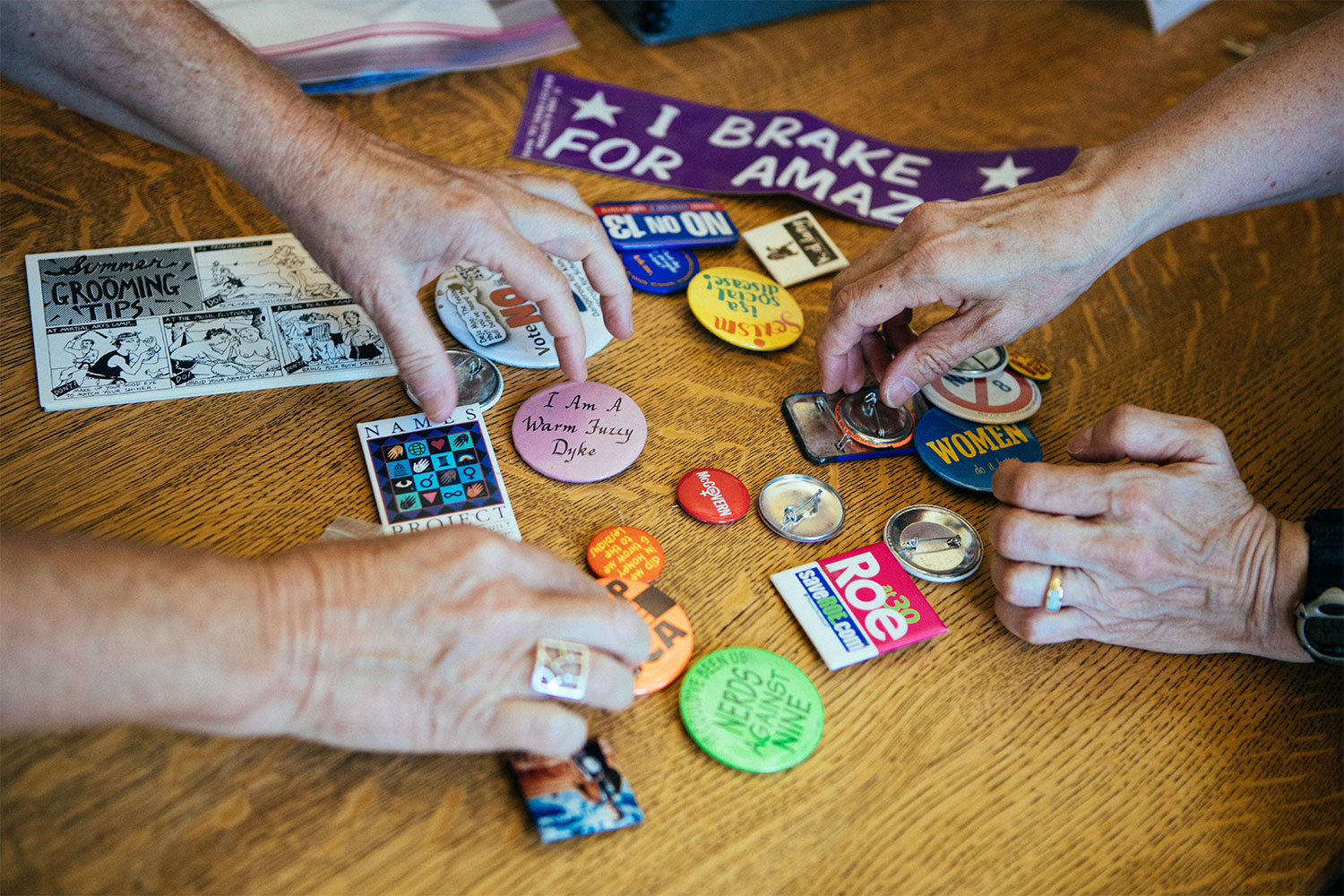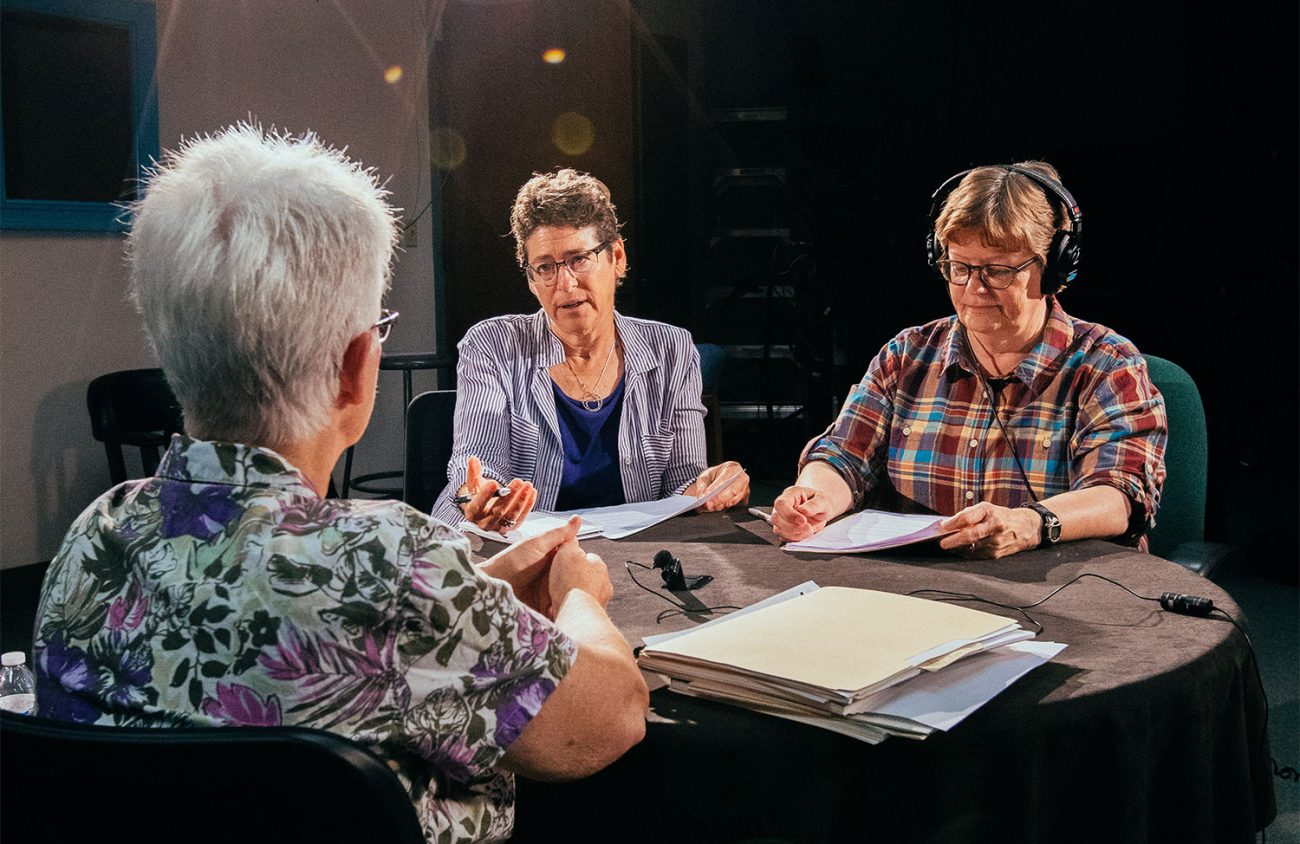In the basement of the Knight Library at the University of Oregon, the knowledge and history of Eugene’s lesbian community is being retold and archived for generations to come.
Linda Long and Judith Raiskin coordinate the Lesbian Oral History Project at the UO, which seeks to document the history of lesbians who lived in Eugene from the ’60s to early ’90s. The two friends make a dynamic duo. Long brings her skills as a manuscripts librarian, and Raiskin brings her knowledge as a women’s, gender and sexuality professor.
Both realized the importance of documenting the history of the lesbian community, and Long thought it would be “great to capture their stories about what being in the lesbian community meant.”
Raiskin says that recently, while attending a funeral for a woman who lived in one of Oregon’s lesbian communities, she noticed the photo albums mourners brought to remember their loved one.
“We need to preserve these photo albums and talk to these people about their history,” Raiskin says. “I thought, we needed to preserve their history … If that history is not preserved, then it’s like it never happened.”
The format of sharing a story is straightforward. Long and Raiskin sit with the storyteller for an hour and a half to two hours and record their conversation on a video camera. In addition to the videos, the pair also collect primary source documents like diaries. The pair say they do two interviews a day, and the interviewees are passionate about sharing their experiences.
Raiskin says there have been a number of oral history projects in the past they have taken pointers from, and Long and Raiskin’s project isn’t the only collection in the UO archives about the LGBTQ community. The UO also houses the Southern Oregon Country Lesbian Archival Project (SOCLAP), which features the foundational documents of Oregon’s separatist lesbian collectives in southern Oregon.
According to the UO Knight Library website, the SOCLAP archives tell the story of a time in which women who migrated to Oregon “wanted to create separatist land where women could live together safely and respectfully, creating art and ritual that consciously rejected the trappings of a patriarchal society.” You can also find the Gay and Lesbian Archives of the Pacific Northwest Oral Histories online at the Oregon Historical Society.
When it comes to the lesbian oral histories in Lane County, Long says, “Every single story moves us. We’re prepared for our interviews. We have the interviewee sit down at a table. Next to the table we have a glass of water and we have a box of Kleenex if they need them.
“But Judith and I have found that we need the Kleenex,” Long notes. “There are deeply profound stories of coming out, or of microaggressions and macroaggressions.”
The project had its first orientation for those who wish to participate on June 9, and Raiskin says that 45 people attended. Initially, Raiskin and Long believed that they would wrap up the project over the summer, but it became clear to them that more lesbians wanted to share their stories. People from outside Oregon were contacting them wanting to participate. Long and Raiskin intended to interview 40 to 50 people this summer, but their list has grown to almost 140 women.
“Going into this project, we weren’t clued into how important this was to the women and we’re affirming how important it is,” Long says. “We’re talking to people who identified as lesbians and are not lesbians now; we’re hoping that people who were at that time in those years are hoping to share that history with us.”
Enlarge

Photo by Todd Cooper
One of the almost 140 women whom Long and Raiskin will interview is Sally Sheklow, whose “Living Out” column ran in EW for 17 years. Sheklow says she came to Eugene from Palo Alto, Calif., in 1972 and then came out as a lesbian in 1973. She recalls when the lesbian community in Eugene filled roles that society traditionally associated with men. “At one time I was on a lesbian softball team and working in a feminist collective, training in martial arts that was taught by lesbian instructors. I went to a lesbian bookstore, I took my car to a lesbian mechanic and I went to a lesbian chiropractor. We had quite a network, and that was all in Eugene.”
Sheklow says she hopes that the community will continue for generations and continue to support its members. “My hope is that the community that we built continues to sustain us and can be a model for people who are struggling to find meaning and their place and a way to be effective in the means of humanity, history and society.
“We were at one time illegal,” Sheklow says. “With humor and culture and working together with connection we can make a difference and change the course of things.”
The interviewees are in their mid-60s to early 70s, but the Long and Raiskin also plan on interviewing individuals who are in their 80s.
Raiskin says that the interviews bring out candid and reflective storytelling, even when the interviewee is telling a story about periods of conflict and division within the lesbian community.
Enlarge

Photo by Todd Cooper
“I love listening to stories and everyone has been so eloquent and self-reflective and honest, even when they talk about conflict within the communities,” Raiskin says. “It’s amazing to me how clear people are.”
Given the project’s popularity, Long and Raiskin held a second orientation Aug. 5. The ultimate goal of the project is for the interviews to be transcribed and the videos can be used by documentary-makers if the need arises in the future.
The pair says that they have received support from the library, and UO’s Center for the Study of Women in Society has contributed $1,540 in grant money to support the lesbian oral history project. Long also was awarded a $5,000 fellowship from the UO Libraries, but the women are applying for grants to fund the transcribing portion of their project as well. “We’re supportive and grateful of the opportunity to preserve this history,” Raiskin says. “Special collections already has lesbian collections that this history ties into, and it’s nice coming together.”
The Lesbian Oral History Project is an ongoing project Contact Linda Long (llong@uoregon.edu) for more information.
